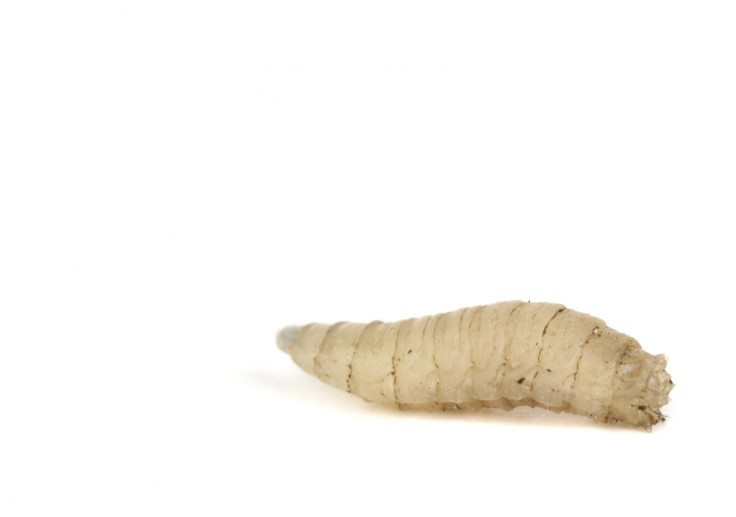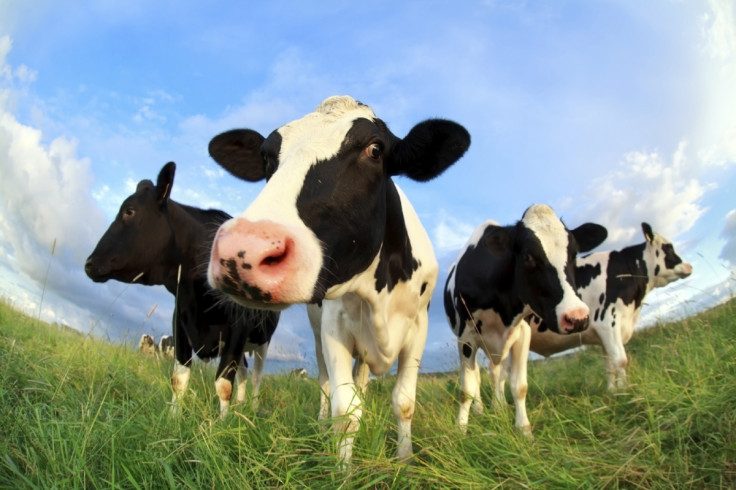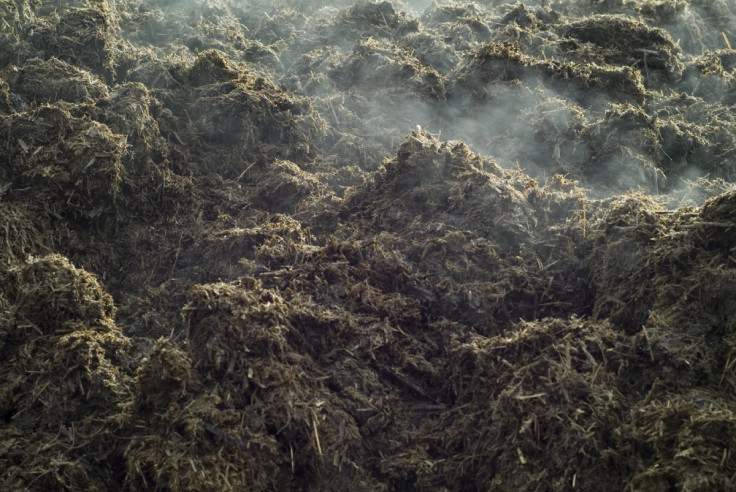Maggots and manure: How to meet the world's meat demand with insect food

Could you stomach roast chicken, pork sausages or a salmon steak if the animals they came from had been fed with fly larvae? What about if the larvae went under their more widely known name of maggots?
Would it make a difference if the maggots in question had been raised on animal manure? And how do you feel about trying a popular Mexican dish of deep fried grasshoppers served with chilli and lime? Perhaps you'd rather keep creepy crawlies off the menu, and out of the diets of the other animals that end up on your plate. The status quo, however, is not an option.
A third of crop lands on Earth are already used to grow plants fed to farm animals and some 14% of ocean fish caught ends up as livestock feed. The United Nations predicts the world's population will grow to 9.7 billion by 2050. Meanwhile, growing disposal incomes in China, Brazil and other emerging economies mean some predict the demand for meat will grow faster still.
It doesn't take advanced mathematics to work out that these numbers don't stack up. On top of the extra pressure on land and water supplies, livestock production already produces around 14% of human greenhouse gases - about the same as all our aeroplanes, cars, trains and other means of transport put together.
Something will, eventually, have to give. For one thing, meat and fish prices are going to soar. Henning Steinfeld, of the UN Food and Agriculture Organization, has predicted beef will become "the caviar of the future".

Perhaps more of us will become vegetarians. However meats provide concentrated sources of protein with higher levels of essential amino acids that the human body cannot make for itself than plant-based foods. Eating meat is also a status symbol in many cultures. Plus, it tastes really good.
Against this background, the entomophagy, or eating of insects, movement has grown in recent years. Former UN Secretary General Kofi Annan points out that insects are already eaten by more than a quarter of the world's population. Actress Angelina Jolie gives her children crickets as snacks. Companies that farm and sell insects as human food products, such as Entomo Farms in Canada and Proti-Farm in the Netherlands are scaling up production rapidly.
Sceptics point out that most westerners find the idea, well, disgusting. That's why some say the way forward is to feed insect protein to farmed animals. A research collaboration titled PROteINSECT has spent the last three years investigating whether fly larvae could provide a more sustainable alternative to some of the soya and fishmeal proteins in livestock and aquaculture feeds.
Results from the project, including feeding trials comparing farm animals given larvae meal with those given a conventional diet, was presented at a conference in Brussels on 27 April.
PROteINSECT will also present new consumer research data, showing that most European people are relaxed about the idea of eating meat from animals given insect-based feed. This will show that 70% of participants thought it was acceptable to feed insect protein to farmed animals, including fish. Just under three-quarters said they thought there was either no or little risk associated with eating livestock fed on insects.
Having said this, the survey failed to mention the M word. The whole premise of the PROteINSECT project was that insects can be raised on manure, which is cheap and plentiful. Fewer than 30% of participants in a previous PROteINSECT survey completed thought that feeding farmed animals a staple of insects raised on chicken manure to be suitable.
The International Platform of Insects for Food and Feed trade association doesn't like all this talk of manure. It describes the study of "substrates currently banned in the EU" as "interesting from a long-term perspective".

Irrespective of whether consumers can be persuaded to get over the 'manure yuck' factor or the 'insects in mouth yuck' factor, the other major barriers are legislative. Currently, some European countries allow the sale of insects for human consumption while others don't. New rules mean that from 2018, those insect-based foods will have to undergo a scientific risk assessment by the European Food Standards Authority.
Currently insects are considered to be "farmed animals" under EU legislation, meaning they cannot be fed to other farmed animals and are subject to prohibit rules on culling. PROteINSECT will today call for a review of this legislation.
Companies gearing up to produce and sell insects are keen for speedy legislative change, saying that if Europe takes too long in reviewing its laws, it will miss economic opportunities and end up importing meat from animals fed on insect protein from elsewhere anyway.
Others, such as David Turner, a food analyst at Mintel, warn the industry needs to learn the lessons of BSE, a crisis in which more than 220 people died from Creutzfeldt-Jakob Disease, as a result of transmission of a disease believed to have been caused by the feeding of cattle meat and bone meal from cows. Consumers, says Turner, might be happy to buy meat from animals fed on insects, but only after thorough safety tests have been carried out.
The situation presents Europe's legislators with a key test. Preliminary, as yet unpublished, results from PROteINSECT suggest that tests on house fly larvae for more than 1,000 potential contaminants revealed little to worry about. The group will publish more details later this year.
All the indications so far are that insects might be able to help ensure the growing world population gets enough high quality protein while mitigating some of the major environmental problems caused by large-scale livestock farming. What is needed now is immediate funding of further safety and nutrition research. Having funded PROteINSECT to the tune of €3 million, the European Commission must now finish the job.
Nic Fleming is a freelance science journalist based in Bristol
© Copyright IBTimes 2025. All rights reserved.






















